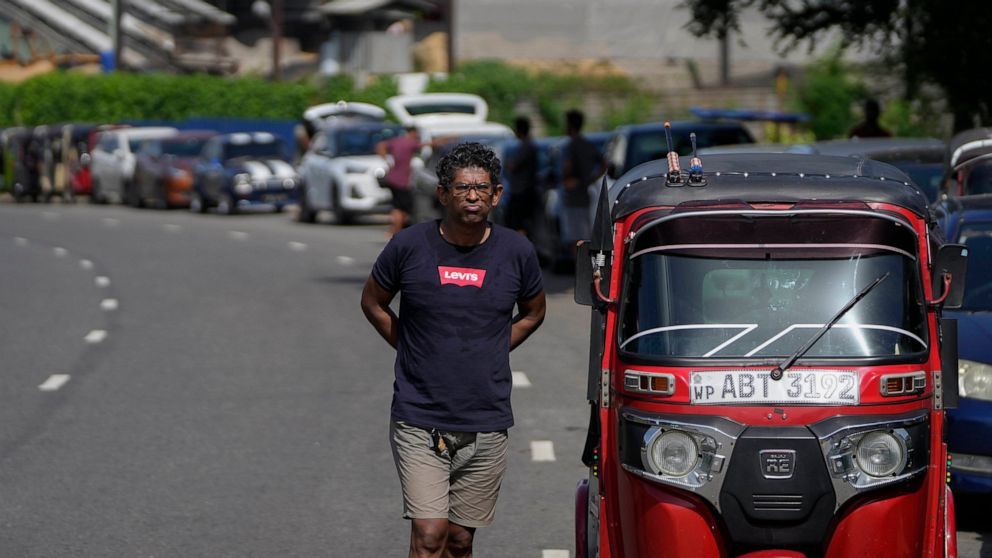As a result of the impending collapse of its economy, the island country of Sri Lanka is sending two government officials to Russia in order to negotiate the purchase of petroleum. This is one of the essentials that is dangerously close to running out.
According to Power and Energy Minister Kanchana Wijesekera, two ministers are planning to depart for Russia on Monday in order to continue in-person discussions that Sri Lanka has been having with the authorities of Russia regarding the direct purchase of fuel, as well as other matters related to this topic.
On Saturday, he pleaded with people not to wait in line for gasoline, stating that only a limited supply will be delivered to a restricted number of outlets during the following week. He said that public transportation, power generators, and industrial operations would be given precedence until the subsequent supplies arrived.
Residents have been forced to wait in line for fuel for hours or even days at a time, and they have sometimes resorted to cooking their food over charcoal or palm frond fires.
These remarks were made by Wijesekera at a time when a high-level team from the United States is now visiting Sri Lanka. The mission is looking for methods to assist the island country in overcoming an unprecedented economic crisis and significant shortages of basic commodities.
The Russian invasion of Ukraine at the end of February has contributed to a meteoric rise in the price of oil throughout the world. Russia is giving its oil at a substantial discount, making it particularly appealing to a number of nations at the same time as Washington and its allies are attempting to curb capital inflows that support Moscow’s war effort.
Sri Lanka, along with a number of other countries in South Asia, has maintained its neutrality on the conflict in Europe.
However, according to Wijesekera, the Sri Lankan foreign ministry and the country’s ambassador in Russia have been in the process of negotiating preparations for the sale of petrol.
“It would be beneficial for us if we could make our oil purchases directly from the government of Russia or from Russian companies. There are discussions taking on, he informed the press over the weekend.
As a result of the shortages, there have been demonstrations directed at the government, most notably to demand gasoline, and the government has responded by stationing armed soldiers in addition to police at each fuel station.
The government of Sri Lanka has announced that it would be unable to repay the $7 billion in foreign debt that is scheduled to be repaid this year, and is waiting for the conclusion of rescue package discussions with the International Monetary Fund. It is required to pay an average of $5 billion per year through 2026. The government has requested that the International Monetary Fund organise a summit to bring together Sri Lanka’s various lenders.
According to Wijesekera, the nation recently purchased a supply of Russian crude oil equaling 99,000 tonnes (99,000 metric tonnes) in order to restart its solitary refinery.
Midway through the month of June, Prime Minister Ranil Wickremesinghe gave an interview to The Associated Press in which he said that Sri Lanka would be obliged to purchase oil from Russia and that the country was attempting to acquire oil and coal from its usual sources in the Middle East.
“If there are any other places from which we can get it, we will obtain it from those places. Otherwise, it’s possible that we’ll have to make another trip to Russia,” he remarked.
Wickremesinghe also said the previous week that the Ceylon Petroleum Corporation, which is managed by the state and is in debt for 700 million dollars, was unable to deliver gasoline since no nation or organisation was prepared to do so.
Meanwhile, on Sunday, the corporation increased the price of gasoline by 22 percent, bringing it up to LKR 550 ($1.83), and the price of diesel increased by 15 percent, bringing it up to LKR 470 ($1.31). Wijeserekara stated that the increase in fuel prices was done to bring them in line with the prices of fuel in other countries.
Protesters have been camped out at the entrance to President Gotabaya Rajapaksa’s office for more than two months now, demanding that he step down from his position. They argue that he and his family bear the primary responsibility for the current crisis, accusing them of both corruption and poor management.
The visit of the United States delegation to Sri Lanka, which began on Sunday and will continue until Wednesday, is being led by Robert Kaproth, deputy assistant secretary of the Treasury for Asia, & Kelly Keiderling, deputy assistant secretary for South and Central Asia. During their stay, they are scheduled to meet with top officials from the Sri Lankan government.

